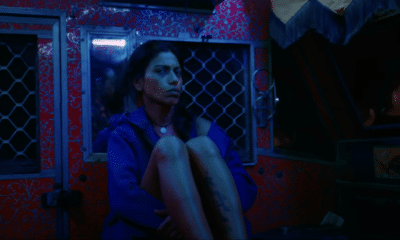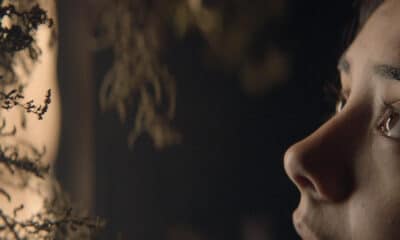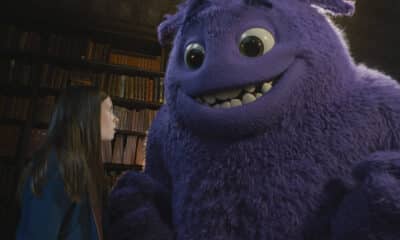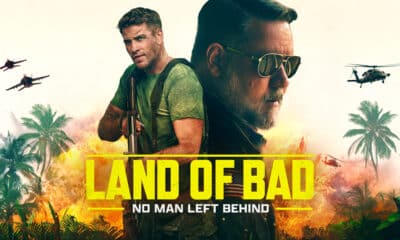Dolph Lundgren is a titan of action cinema. He burst onto the scene as Ivan Drago in Rocky IV and has spent the last few decades showcasing his talents in an impressive array of iconic action hero and villain roles. In addition to acting, Dolph Lundgren is a qualified chemical engineer and also a writer and director, with his eighth title, Wanted Man, available on digital now.
For Wanted Man, Dolph Lundgren serves as writer, director, and star. He plays Travis Johansen, a detective whose outdated policing methods have given the department a recent public relations problem. To save his job, he is sent to Mexico to extradite a female witness to the murders of two DEA agents. Once there, he finds not only his old opinions challenged, but that bad guys on both sides of the border are now gunning for him and his witness.
Wanted Man is a project that Lundgren has been trying to get made for years. With the film finally out in the world, THN were fortunate enough to be granted some time with Lundgren to discuss its development. Prior to delving into the questions, Dolph revealed himself to have an affinity for felines as he noticed this writer’s housecat. He then insisted on bringing in his own cat, Bello, who also played a part in Wanted Man and received a mention during the special thanks. Dolph explained the reasons for that; “he was with us in New Mexico. He had to wait around a lot so we owed him a little apology, so he got a mention.” Once all furry companions were under control, we dug into the film, the climate of action cinema, and exactly what Rocky’s Ivan Drago means to him.
Wanted Man is a project that you’ve been working on for a number of years, how did it finally come into being?
It came right at the end of Covid. I had the script fifteen years ago and then immigration became a hotter topic, let’s say 5 years ago, and then I started thinking about the script again. I wanted to direct another movie and it was easier if it was something that I controlled. I went to this Fourth of July party and there was a guy there who went off on immigration, and all the immigrants and the situation. So I thought, “oh interesting. Maybe I’ll give these characters, these sort of law enforcement guys, a little bit of that attitude.” I came up with an idea and then somebody wanted to finance the movie, probably because of the action. It happened very quickly then.
You have directed a few films now. Does it get any easier, and is there anything you learned on other projects that you implemented here?
It gets a little bit easier, but not that much easier. It’s directing and acting that’s challenging. You do have to work on your character and make some decisions beforehand so you can focus on the other actors and your job as a director. I think that every film is different and they all have their own personality. It depends a lot on location. You write one film, you direct the second, and you cut the third. So really you’re kind of along for the ride a little bit.
In this case, we had a lot of problems in New Mexico. Big problems, Production problems because Netflix were there. We didn’t know that they had hired a bunch of the crew. There isn’t that much crew there and so we had to fly people in from LA. I was dealing a lot with these practical issues so it became a bit of a struggle. If you don’t stick to certain rules, the state can shut you down, so we were dealing with some of that.
What I always try to do is really prepare myself, but also work on the other actors, their characters and their backstories. When we show up on set and you’re shooting in twenty days, there’s not a lot of time to start discussing a scene for hours. You can talk about it for ten or fifteen minutes. What I did learn on this one was that, because of the rush to get it done, I didn’t have much time to storyboard, which I like to do. I like to prepare a lot. Anything I do in life, I like to prepare – I’m a chemical engineer, right? So I like to prepare and in my next picture I will definitely not rush into anything. I will try to really visually plan it a little better than I did on this one.
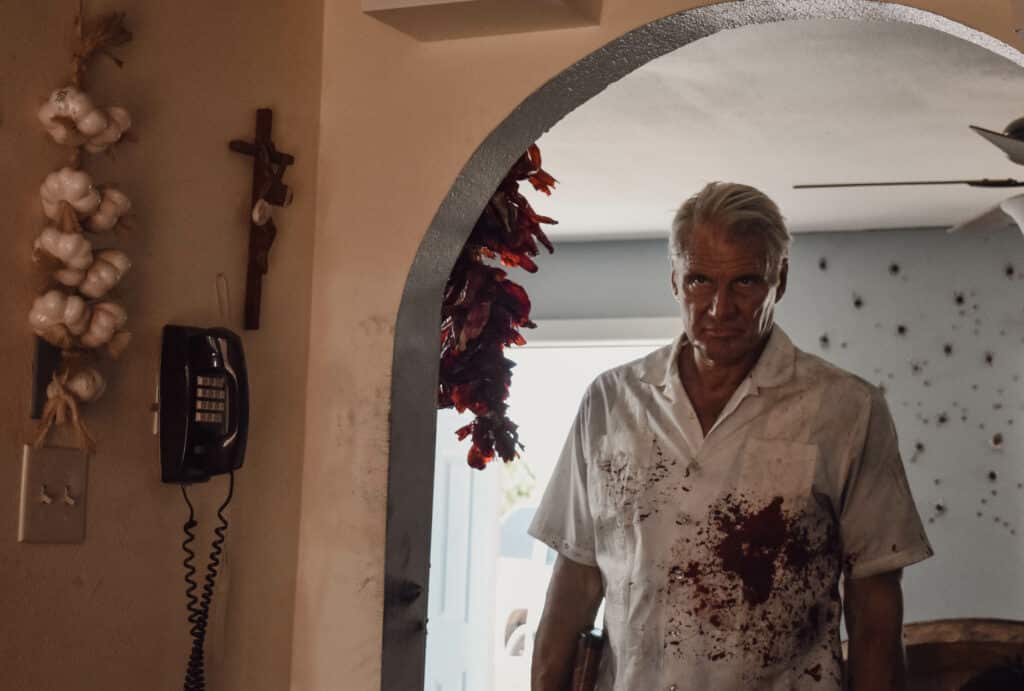
It’s a real family affair with your wife, daughter, and cat involved. Does that make your job easier knowing that they are helping support you?
Well it was mostly my wife because she was also a producer on it. She was one of the few people who was unbiased and who wasn’t involved in doing one separate thing. She was kind of my eyes and ears around the set, especially making quick decisions, on the budget and on the schedule. It’s good to have someone who’s honest with you who will say, “well Dolph you should really redo that, you didn’t sound too good, it didn’t look good what you did there,” or “that doesn’t work.” Very few people say that because you’re on a film set, and because I’m acting and directing and wrote the script, very few people are going to argue with me, and she will.
The first film when we met was called Castle Falls. That was a film I directed during Covid so it was quite difficult. She was just around and I’d be reading out scenes, and then she would go, “why does that character say that? Why would you say that?” and I was thinking “yeah, that’s a good point.” I started realising she was quite clever, and also she just brings in a female point of view. We’re now working on a couple of different projects.
For most of your career you’ve been making action movies, what is it about the genre that continues to fascinate you?
What fascinates me is that I can get a job doing it (laughs) because I’m believable beating people up. When I started in Rocky IV I was a fighter. I was dealing with a lot of personal issues and traumas from my childhood and these were easy movies for me to get. I was always interested in more drama because I was a painter, and I played music when I was younger. So I’m a little more well-rounded, maybe as an artist, but I like being physical, and it was a way to express myself, and people seem to like to see me move on screen. I think you could also say that it’s a genre that I was sort of born to be in.
If you want to bring in other aspects of life, humanity, you look somewhere like Clint Eastwood, he does movies. Yes, some of them have action and there’s usually some kind of high stakes, life and death in a lot of his movies, but some of them are very artistic. The good thing about that genre is that you can keep working and you can get things made, but I’m trying to turn that corner a little bit as a director. It’s not that easy, but because I have a name and I can bring financing to the table I can have some say in the stuff I do. I can make it more dramatic, and less action, if I want now. It wasn’t so easy ten years ago. But also the fact that I was in Aquaman and bigger movies that made some money helps as well.

As with many of your other movies, there are a lot of gunfights, knife combat, and fistfights on display. At this point, is picking up choreography just muscle memory?
Yeah. I’ve done a lot of action. I can do that in my sleep a little bit. As an actor and as a director I do have a certain point of view about it, to make it sort of violent and real. I’m not a big fan of super choreographed stuff like in the superhero movies. Nobody gets hurt. It’s beautiful to look at, it’s like a ballet, but I enjoy trying to create interesting characters and telling an interesting story, if I can. That’s kind of my next step I think as a director, is trying to focus a little more on that and then if there’s action it’ll be the more a byproduct of the story rather than doing it just for the action.
The knife scenes in Wanted Man are brutal, and I think it’s partly because of what you said about violence in cinema having become sanitised.
Yeah, that’s true. I mean it’s been sanitised, to a point where…which is interesting how it goes. It used to be like that in the World War II era. You couldn’t show certain things; guys get shot, but there was nothing. Then of course you went through the 60s, 70s, Taxi Driver and The Wild Bunch, and The Godfather was very, very, graphic violence. Now it’s sort of turned the corner in the other way again, where especially in America, in the superhero movies nobody dies, and the bad guy will come back as the good guy next time. I’m sure it’ll swing back again.

In Wanted Man, Travis goes on a journey; by the end of the film he’s very much not the man we first see. How important was it for you to show this development in his story?
The character evolves because of his journey, we kind of all change because people we meet usually, and they have a lot of influence on us, and I think that’s what I was trying to tell. It just made a little more of an interesting story than just having the same character in the beginning and at the end. It gave me something to play as well as an actor, so it’s always fun. He reminded me of my dad a little bit in the beginning. He was a bit of a bitter guy, and he had a lot of demons. He had preconceived notions about people, either they were great, or they were useless, so I had a little bit of him in there too.
You have over 100 credits on IMDB and yet, despite having worked with James Wan twice, there don’t seem to be any horror films in your credits. Do you think James would ever be able to tempt you into making one?
(Chuckles) I don’t know. Right now I’m working on this dark comedy set in LA. I’m trying to direct it, which might be my next movie as a director. I hadn’t really done that much comedy. I’ve done characters that are a little bit comedic like in The Expendables, and Kindergarten Cop 2, but this is more of a dark comedy, a little bit Get Shorty, The Player, or King of Comedy, where it’s sort of real, but a bit of a hilarious setup, so we’ll see.
I can’t not speak to you about the Rocky and Creed films. What do those films and the character of Ivan Drago mean to you?
Well, first of all, I got a job when I was looking for one when I was a kid. I was 27 years old and got a job and I got famous very quickly. I didn’t know what I was doing more or less. I knew how to play this one character, but I hadn’t done much acting. I became kind of a movie star before I knew what movies were really about. It took me years to recover from that, just personally to just feel comfortable in trying to deal with an image. People would expect me to be a certain way that wasn’t really me, it was just a character I played. So the first film brought a lot of fame and work, action movies for 20-30 years, and then I was offered to play this character again.
I didn’t want to do it at first, but then there was a really great script, and the director of Creed II, Steven Caple Jr., wanted to take that character and give him this kind of redemption arc. Also it was the father / son relationship, which felt really interesting to me because of my dad. I had a big problem with my dad. We had a huge conflict, and that’s why I became a fighter and an actor even. So I got to play him. I got to play my dad and kind of make up with my son. It was quite a personal film for me.

That’s really interesting, and something that films do really well – they allow the audience, and actors, to deal with their problems in their own life. I think that’s something so important about the arts, that they create this space for these cathartic experiences.
I remember on Creed II, we had a premiere in London and I had some people there; a fighter, an older lawyer friend of mine, and a lot of the men were quite touched by it. Especially in men of an earlier generation, and their fathers. I think there was a lot of conflict there. Many times because people just didn’t know how to be loving, they just didn’t know, and the kids would usually have to go through life without ever getting any love from their dad.
When I was working on the character in Creed II, I was working with somebody on it, and he was very smart, he said, “you want to create a character where the audience thinks this is the last guy in the world who is going to throw in the towel, is your guy in the ring. So when you do it to save your son, it’s going to mean a lot. So you have to spend 95% of the movie playing against the compassion, but then at the end, when you give in, it means something.” It was just an example of a well structured script and a good director. I mean, without that, it’s hard to deliver a performance really.
Wanted Man is available on Digital Platforms now. Distributed by Signature Entertainment.
Kat Hughes is a UK born film critic and interviewer who has a passion for horror films. An editor for THN, Kat is also a Rotten Tomatoes Approved Critic. She has bylines with Ghouls Magazine, Arrow Video, Film Stories, Certified Forgotten and FILMHOUNDS and has had essays published in home entertainment releases by Vinegar Syndrome and Second Sight. When not writing about horror, Kat hosts micro podcast Movies with Mummy along with her five-year-old daughter.

Latest Posts
-


Film Trailers
/ 2 hours agoFestival trailer for ‘The Shameless’ which will premiere in Cannes
A trailer has dropped for The Shameless, a new film set to arrive on...
By Paul Heath -


Film Trailers
/ 4 hours agoTrailer for folk horror ‘Sorcery’ – new film set for summer release
A trailer has landed for the new folk horror Sorcery which is set to...
By Paul Heath -


Film News
/ 6 hours agoNew featurette for John Krasinski’s ‘IF’ film
Ahead of its coming premiere on screens in cinemas a new behind the scenes...
By Paul Heath -


Film Trailers
/ 6 hours agoFirst trailer arrives for ‘Mufasa: The Lion King’
Coming to cinemas this Christmas.
By Paul Heath
